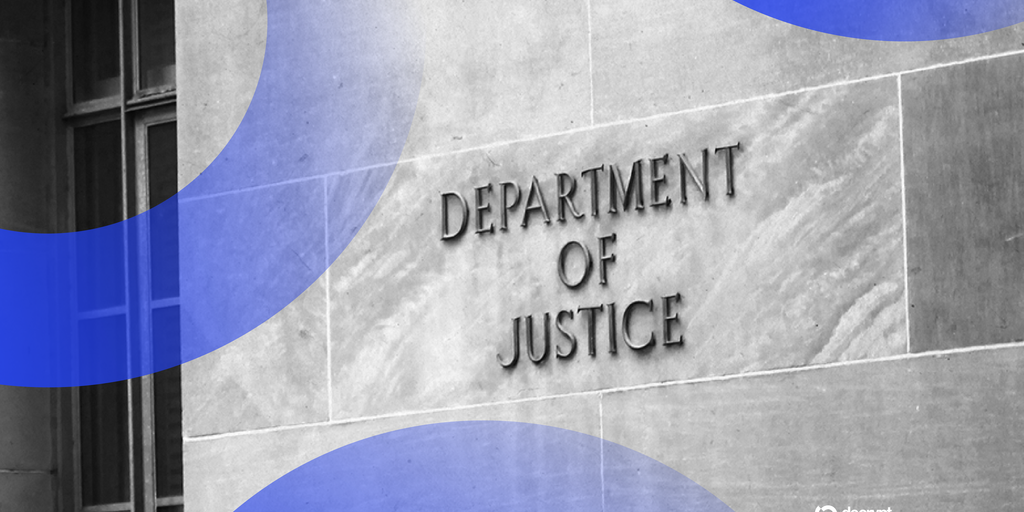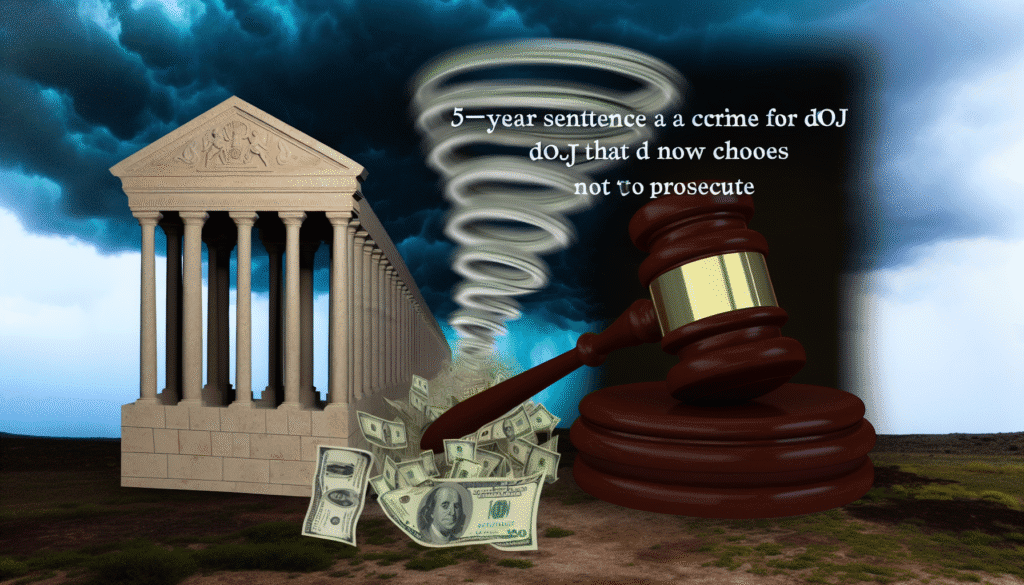
In brief
- The DOJ has declared it will halt charging decentralized software developers under the same laws that led to the conviction of Tornado Cash co-founder Roman Storm earlier this month.
- Matthew Galeotti of the DOJ clarified that charges will be avoided when software is genuinely decentralized and non-custodial, although other charges may apply if criminal intent is suspected.
- This policy change has been celebrated by numerous leaders in the crypto industry as a significant achievement, though some advocates have raised concerns about its timing and implications given Storm’s recent conviction and the DOJ’s ongoing discretion in related matters.
A senior official from the Department of Justice informed an assembly of crypto industry leaders on Thursday that the U.S. government will cease charging decentralized software developers with a specific crime—the same crime for which federal prosecutors secured a conviction against Tornado Cash co-founder Roman Storm earlier this month.
This charge, pursuant to U.S. code 1960(b)(1)(C), forbids operators of unlicensed money transmitting businesses from handling funds known to originate from a crime or intended for unlawful purposes. Just weeks earlier, a jury in Manhattan found Storm guilty of violating this law, which carries a penalty of up to five years in federal prison. The jury did not reach a verdict on other counts.
In Jackson Hole, Wyoming today, Matthew Galeotti—the acting head of the DOJ’s criminal division—told a network of crypto lobbyists and industry leaders at a policy summit that federal prosecutors will not pursue charges under 1960(b)(1)(C) against developers of decentralized software.
“In scenarios where evidence demonstrates that software is truly decentralized and solely facilitates peer-to-peer transactions, without third-party custody or control over user assets, new 1960(b)(1)(C) charges against a third party will not be initiated,” he stated.
He added that if there is evidence of criminal intent, however, “other charges might be warranted.”
Galeotti emphasized that this new policy will be enforced by the DOJ “from this point onward,” potentially in reference to Storm’s recent conviction on the same charge.
Storm was arrested and charged with multiple crimes in 2023, including conspiracy to commit money laundering and sanctions violations related to his operation of Tornado Cash—a coin mixing service that enables crypto users to conduct private on-chain transactions.
When the Trump administration took over Storm’s case earlier this year, it did dismiss one charge related to operating an unregistered money transmitting business, yet maintained the charge alleging that he operated Tornado Cash while being aware that some users were handling funds connected to criminal activities.
This change aligned with a DOJ memo released in April that prompted federal prosecutors to be cautious with most crypto-related cases—but not necessarily all.
Crypto lobbyists and industry leaders present for Galeotti’s announcement praised him, celebrating enthusiastically following the conclusion of his speech. They were convened in Wyoming for the first summit of the American Innovation Project, a new pro-crypto nonprofit supported by influential figures in the industry.
Amanda Tuminelli, executive director of the DeFi Education Fund, a lobbying group in the crypto space, attended Galeotti’s speech today. In a statement shared with Decrypt, she expressed her appreciation for the DOJ policy shift and thanked the Trump administration for “acknowledging our concerns regarding Section 1960.”
“The DOJ’s recognition that software developers should not bear responsibility for third-party misuse of their code validates our advocacy over the years,” she stated.
Conversely, some were less optimistic. Coin Center Executive Director Peter Van Valkenburg echoed gratitude for Galeotti’s remarks in a post on X but expressed concern that it seems “a little late” given Roman Storm’s situation.
“I am particularly interested if the DOJ continues its efforts when Roman appeals his unlicensed money transmission verdict. If they do, what does this speech signify?” Van Valkenburg commented. The Coin Center executive, who leads the nonprofit advocacy group, also voiced concern regarding Galeotti’s warning on “criminal intent,” noting that the official’s statements are not binding.
In recent months, DeFi and privacy advocates have balanced their praise for the Trump administration’s pro-crypto policy changes with serious concerns regarding the implications of Storm’s prosecution and conviction by the current DOJ.
Following Galeotti’s address this afternoon, he took part in an off-the-record Q&A session with industry leaders in attendance. A source in the room informed Decrypt that there were no questions posed regarding the Roman Storm case.
Daily Debrief Newsletter
Start every day with the top news stories right now, plus original features, a podcast, videos and more.

